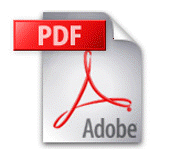 about Fair Use.
about Fair Use. [The] fair use of a copyrighted work … for purposes such as criticism, comment, news reporting, teaching (including multiple copies for classroom use), scholarship, or research, is not an infringement of copyright. In determining whether the use made of a work in any particular case is a fair use the factors to be considered shall include —For academic work published by a commercial publisher this poses a problem and a number of questions. It is normally not considered a violation of copyright for the author of an article to give copies to people who request them. Yet presumably it would be a violation of copyright for an author to post the article on his website.The fact that a work is unpublished shall not itself bar a finding of fair use if such finding is made upon consideration of all the above factors.
- the purpose and character of the use, including whether such use is of a commercial nature or is for nonprofit educational purposes;
- the nature of the copyrighted work;
- the amount and substantiality of the portion used in relation to the copyrighted work as a whole; and
- the effect of the use upon the potential market for or value of the copyrighted work.
One can imagine a range of intermediate possibilities.
- What if the author published his vita on his website (including a citation of the article in question) and responded to email requests for copies of the article by sending them out to each requester? It's been my experience that most authors will respond to requests for copies of papers by sending them out. I do. Therefore publishing a citation to a paper is in most cases an implicit invitation to request a copy.
- What if the author included an explicit invitation telling visitors to his or her website that if they wanted copies they should contact him or her?
- What if the author included his or her email address in the invitation?
- What if the author forwarded all such requests to a department secretary, who sent out the copies?
- What if the email address for the article was a special email address that was used only for requests for this article? What if the author created a separate email address for each article? This would make it easier on the secretary.
- What if the author's department set up a server that responded to each email request by sending out the article automatically?
- What if the author's web page included a form that a reader could use to request any of the author's articles? What if the form was processed by the web server so that all requested articles were sent out automatically?
- What if instead of a form there was there was a button next to the citation that requested the article? When a reader clicked the button a request was sent to the web server, which sent out the article by email.
 (Presumably somewhere else on the page the reader had entered his or her email address.)
(Presumably somewhere else on the page the reader had entered his or her email address.) - What if the button looked like a pdf icon?
- What if instead of sending out the article by email the web server sent it to the reader's own web browser? That would save the requester the trouble of entering his or her email address.

No comments:
Post a Comment